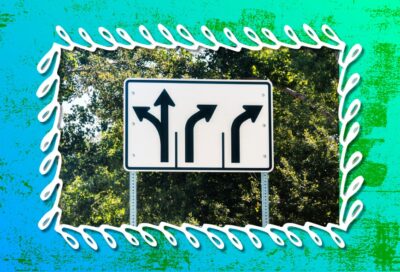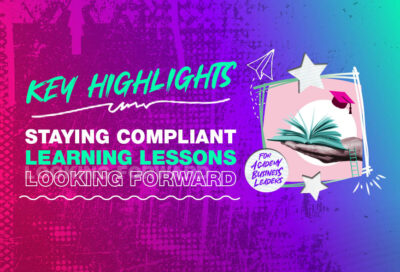VAT was on the agenda again at this year’s annual event for academies – STAYING COMPLIANT. LEARNING LESSONS. LOOKNG FORWARD. The session was delivered as a Q&A, focussing on some commonly asked questions relating to how academy schools should manage their VAT compliance.
Below we take a look at some of these and share some thoughts on how we’d typically answer them for a client. The answers do only scratch the surface of all the complexities which may sit behind these questions. So, there is a caveat to them of ‘it depends’ when applying them to your situation. VAT is very fact-specific depending on the nature of each academy. But hopefully, the answers will give you some food for thought on what to think about if some of these questions resonate with you.
Q. We are about to convert to an academy – previously, we haven’t needed to handle our own VAT affairs, why is it different once we’re an academy?
Where schools are under local authority control, their VAT status forms part and parcel of the local authority’s own VAT registration. Typically, a central team in the local authority handles the VAT compliance obligations and the school itself has only a minimal role in the VAT.
However, if a school converts to an academy, they are treated as their own entity for VAT purposes and are solely responsible for their own VAT and financial affairs. While the VAT legislation has been drafted to put academies in broadly the same VAT position as local authority schools, the academy will need to produce their own accounts, and file their own VAT compliance paperwork with HMRC, ultimately taking their own decisions on VAT accounting treatment.
Q. How do we go about reclaiming the VAT on our costs once we are an academy?
There are two ways to do this, and depending on your circumstances, you may be able to use either of them. However, in some cases, you won’t have the choice.
The first thing to bear in mind is that the education you provide is seen as a non-business activity, given you provide it under an obligation under the State and using grant funding from the DfE. Ordinarily, organisations which carry out non-business activities cannot recover VAT on costs. However, since 2011, special legislation was introduced to allow academies to recover VAT on costs associated with their non-business activity of educating pupils for free.
All academies therefore have the ability to reclaim VAT on certain costs from HMRC by filing specific refund claims from HMRC using Form 126. This should cover the majority of your expenditure. However, you’ll also need to understand whether you have additional “business” activities for VAT purposes. Costs relating to these activities is not recoverable via Form 126, but depending on the type of activity, you may need to register for VAT.
Where an academy has registered for VAT, either voluntarily or because it has taxable income over £90,000, it should use its VAT return to recover VAT on non-business activity, while also using the VAT return to account for output VAT as necessary on income.
Q. What kinds of sales are taxable business activities?
Common examples include:
- Sales of printed books – zero-rated
- Sales of uniforms – broadly zero-rated if for under 14s, and standard rated otherwise
- Sales of food and catering to staff and visitors
- Some lettings of sports facilities
- Lettings of classrooms and other general space where the academy has exercised an option to tax
Q. What kinds of sales are VAT-exempt business activities?
Common examples include:
- Lettings of classrooms / general space where the academy hasn’t exercised an option to tax
- Lettings of sports facilities where all the block booking conditions are met
- Vocational training or education in return for a fee
Q: We are providing support to other academies (who are not in our Trust). How might that be treated for VAT?
The income generated from this activity is more than likely to be treated as business income for VAT purposes, as it doesn’t relate to your own provision of education to your pupils.
Often, such support is treated as consultancy services, or potentially the provision of information and standards, and is subject to VAT. However, if you provide teachers, HMRC accepts that the supply of teaching staff from one eligible body to another qualifies as a supply of education in its own right and is exempt. This includes the supply of classroom assistants.
Equally, if you are providing vocational training, such as CPD courses or training, this could also be exempt from VAT.
This therefore shows the importance of understanding exactly what is being provided and making sure you have all the facts before concluding on the VAT treatment.
Q: What are non-business activities?
As mentioned already, your main activity, being the supply of free education to pupils is a non-business activity. Any funding you receive from the DfE to pay for this activity is outside the scope of VAT and you’re not required to account for any output VAT on this.
In addition, some activities which are “closely related to education” are deemed to be non-business too and any income received is outside the scope of VAT.
Common examples of this are:
- School meals to pupils
- Breakfast / after-school clubs
- Educational trips
- Musical instruments which are to be used in school music lessons / groups
But these must be provided:
- At or below cost – can’t generate a profit from them;
- Directly to the pupil; and
- Be necessary for the delivery of education to the pupil
If you breach any of these 3 requirements, then it will be business income and you’d need to consider whether it is taxable or exempt.
Q: If we have some business activities which are exempt from VAT, does this make it more complicated?
Yes, because VAT-exempt business activities do not allow VAT incurred on associated expenditure to be reclaimed.
If you fall into this situation, you would have to carry out calculations for each of your VAT returns to apportion the VAT incurred on business expenditure between that which you can reclaim and that which you cannot. This is called partial exemption and you would need to separately identify the VAT you incur on costs associated with your educational activities, taxable business activities and exempt business activities in order to carry out the required calculations.
There are some simplifications that you can use to help you do this, including the de minimis test, but it will be an additional administrative burden you will have to comply with.
Q: We only submit VAT refund claims via Form 126 – do we need to comply with Making Tax Digital for VAT?
There’s some good news for any academies in that position. No, Making Tax Digital (“MTD”) isn’t something you need to worry about. Given it mainly relates to how the VAT return is prepared and submitted, this doesn’t apply to the Form 126 refund claims as they are much more simplistic. So at least that’s one less thing to worry about.
Unfortunately, for those who are VAT registered, VAT MTD is very much something that needs to be on your radar. So, if you are concerned about your MTD compliance and processes, please do get in touch and we can discuss how we might be able to help.
If any of the questions and answers above resonate as areas that are causing you concern, we’d be happy to sit down with you over a coffee to talk through how we may be able to help you further. Get in touch here.






















